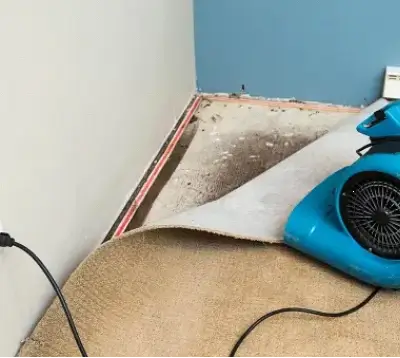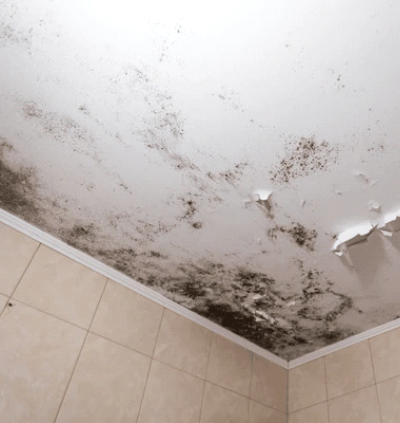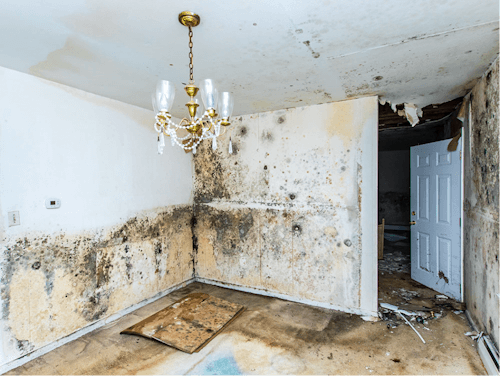Flooded basements are bound to happen when there’s inappropriate drainage, seepage from the walls, severe weather conditions, and no pumping facility.
There is an option of having a drain in the basement which shall save the basement from flooding. The drains’ blockade is often attributed to debris stuck in the drains.
Another option to avoid basement flooding is to equip yourself with a sump pump, which will help moving water away from the homes and send it to storm drains.
If this fails, the last resort is to drain the water out as quickly as possible and then dry the area to prevent any damage to the property.
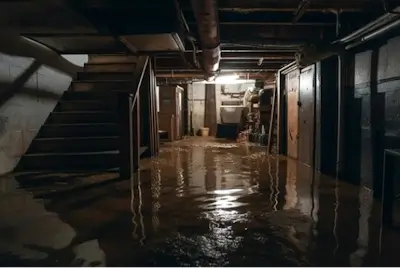
What Causes Basement Flooding?
Severe weather and torrential rainfalls are some of the known reasons for basement flooding. Water seepage can cause flooding due to such extreme conditions and water being collected around the foundation of the house.
Weather Conditions
Weather is always unpredictable and especially when there’s heavy rainfall and snowmelt, water accumulates around the base of the house and eventually seeps in the house and from there it finds its way to the basement and you end up having a flooded basement. Having a stream nearby will always remain a threat to homes with basements.
Water Leaks
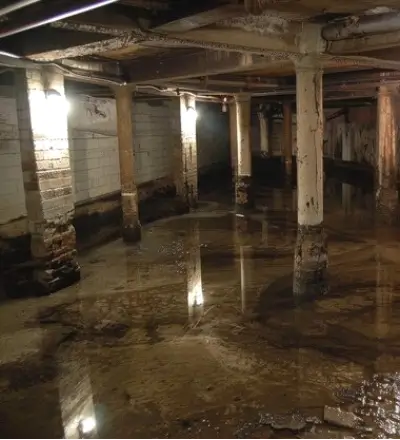
It can be illustrated by a situation where there are cracked unattended pipes in the foundation which over time leak and cause the basements to flood. The water, due to the rule of gravity will always travel through the crack and will find its way to the basement causing flooding.
Faulty Appliances
Appliances are the necessity of every household such as washing machines, dishwashers and refrigerators etc. and these become the reason for a flooded basement. A malfunction of any of these appliances can result in catastrophic results.
Sewer Faults
Another known cause of basement flooding is sewer overflowing due to heavy rainfalls and other means of water coming in. The water can not be controlled by the sewer so they overflow and the water leads to the basements.
Locality
It’s known that location does matter, especially when you have a basement and live near a stream too, as it may in severe weather conditions cause trouble and flooding in the basement. Another considerable factor is if you live with steep hills in your lawn, the water will travel towards your home whenever there’s heavy rainfall and causing basement flooding.
Broken Sump Pump
A sump pump is another cause that may cause basement flooding when there’s a malfunction in the sump pump. It’s highly recommended to periodically check the sump pump to avoid any unpleasant situation of flooding.
Steps for Flood Cleanup in Basement
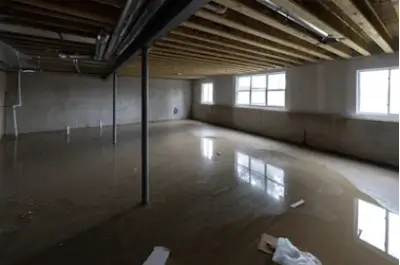 It’s best to seek restoration services from professionals when the basement water is more than a couple of inches, they are well-trained and well-equipped to deal with such situations.
It’s best to seek restoration services from professionals when the basement water is more than a couple of inches, they are well-trained and well-equipped to deal with such situations.
In case you have flood insurance then it’s advised to call your insurance company. If the water level is an inch or two then follow the steps below to clean up the flooding.
It should be kept in mind that there are numerous hazardous bacteria in water. It’s important to turn off the water source causing the flood and then follow the steps for basement cleaning.
Protect Yourself
In every hazardous situation, it is important to protect yourself first. Always wear protective gear such as a mask, gloves, goggles, and suits to protect yourself because the water may contain toxic materials, pollutants, sewer overflow, chemicals, etc.
Cut off Power Supply
Always remember to turn off all electrical appliances and sources of electricity coming to the flooded basement, in case you locate the circuit breaker, turn off the power, or call the professional to engage with electrical appliances and circuit breakers.
Dry Out the Basement
The foremost object is to remove the water from the basement by cleaning it because mold can form in less than 48 hours. To achieve the ends wet/dry vacuum can be used or a sump pump can do the job too. It may take a lot of effort to remove the water through a vacuum due to small canisters.
Big fans in the basement can help dry the place but It is best to put the dehumidifier in the basement once the water has been cleaned. Dehumidifiers will prevent the mold from forming.
Empty the Basement
The furniture needs to be moved in the out so that the furniture may dry in a well-ventilated area. Insulation and wet drywall need to be removed as soon as possible to prevent mold. Carpets shall be removed so that the floor underneath may dry.
All appliances are advised to be thrown away if they have been damaged by flood water. Don’t forget to take pictures of the damaged property for insurance purposes.
Clean the Affected Areas
All the walls and floors need to be cleaned after flood water. The home should be dried up properly and thoroughly wiped. Surfaces can be cleaned with detergent and water, according to mold cleanup guidelines from the Environmental Protection Agency. In some cases, it’s best to hire a mold remediation professional to handle the mold cleanup.
Waterproofing the Basement – Does it Help?
The possibility of basement floods is very high. To eradicate the chances of flooding in the basement a sump pump along with a perimeter drainage equipment can be installed to prevent flooding. There are numerous sump pumps which are run by their independent power source in case of outage.
Recommendations for the optimum sump pump which suits your needs can be obtained from water proofing professionals who have waterproofing systems as well.
24/7 Service Pros Can Help!
Flooding in the basement is a common issue that we deal with. Flood cleanup services can be provided by 24/7 Service Pros. A team of professionals is always there to serve you and help you live a mold-free life. We are just a simple call away.
We deal in all flood-related situations, leading to mold, efficiently and highly professionally using the latest tools, skills, and well-equipped manpower.
Which Areas We Serve in South Florida?
- Hollywood
- Davie
- Miami Beach
- Weston
- Hallandale Beach
- North Miami Beach
- Sunrise
- Tamarac
- Coconut Creek
- Fort Lauderdale
- Miami
- Boca Raton
- Hialeah
- Margate
- Pembrock Pines
- Dania Beach
- Lauderhill
- Delray Beach
- Pompano Beach
- Deerfield Beach
- Coral Springs
- Plantation
- Doral
- Aventura
- Miramar
- Sunny Isles Beach

